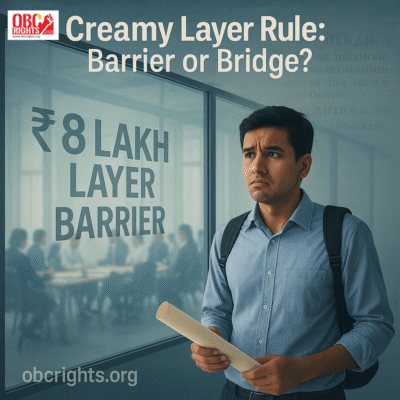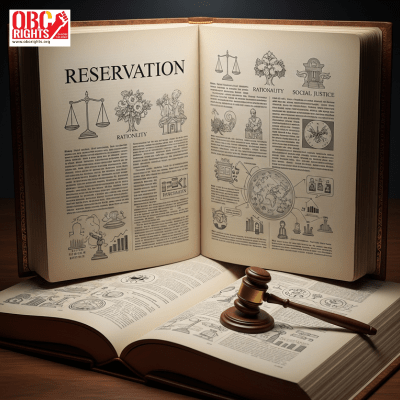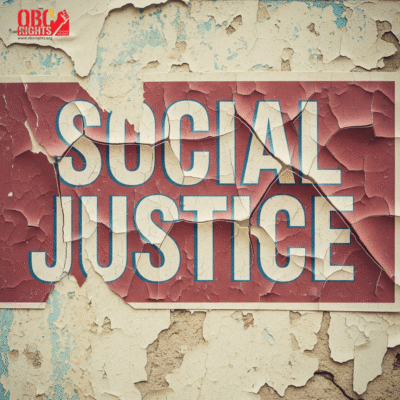India’s reservation policy was created to support communities that are socially and educationally disadvantaged. But what happens when some among them move forward — economically or professionally?. Should they continue to get reservation benefits?. This question gave rise to a concept called the “Creamy Layer.” And comply with the directions given in Article 340 of the Constitution of India.
It’s a controversial, evolving rule—and for many OBC youth, it is the key to know where they stand in the system.
What is the Creamy Layer Concept?
The Creamy Layer rule excludes the “advanced” members of the OBC category from accessing reservation benefits in jobs and education. They have a fixed income limit, i.e., Rs. 8 Lakhs per year.
Originally introduced by the Supreme Court in the Indra Sawhney case (1992), the idea was that once a person or family has reached a certain economic or social level, they no longer need affirmative action.
Current Rules for Creamy Layer (As of 2024)
OBC individuals are considered part of the Creamy Layer and not eligible for reservation if:
1. Income based
If a family’s gross yearly income is more than ₹8 lakh, the person is considered part of the Creamy Layer.
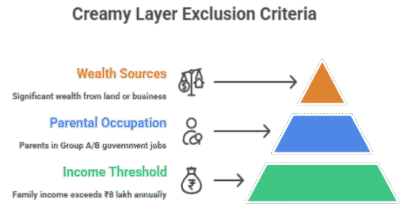
2. Parental Occupation
Regardless of income, the following parental jobs automatically exclude OBC children:
- Group A government officers (IAS, IPS, etc.)
- Group B officers (if both parents hold Group B posts)
- High-ranking PSU employees (bank executives, etc.)
- Highly paid professionals such as doctors, lawyers, and engineers.
3. Wealth from Other Sources
Wealth from land, business, or real estate can also be considered when determining Creamy Layer status.
The Big Debate: Is Income Enough?
This has become one of the most discussed issues in the reservation discourse.
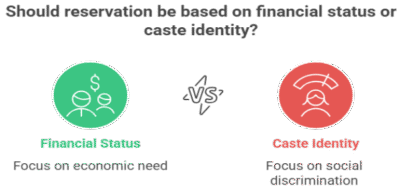
Side 1: Use Income as the Main Factor
- Some believe that once an OBC family becomes financially stable, they don’t need a reservation anymore.
- They believe that financial stability allows access to quality education, coaching, and job opportunities.
- So, in their view, the reservation should go to poor families—not those who are already well placed.
Side 2: Caste Bias Still Continues
- Others say that being rich doesn’t stop caste-based discrimination.
- Even well-off OBCs face bias in jobs, housing, marriages, and social spaces.
- Caste identity still affects how people are treated—income can’t change that.
Final Thought:
In many cases, money changes lifestyle—but not how or the way society treats you.
That’s why reservation still matters—for those who face barriers that wealth alone can’t break.
A Question for You:
Do you think someone becomes socially equal just because they earn more?
Can money make someone socially equal? – Does Financial status always ensure Social Status?
What do you think so?

